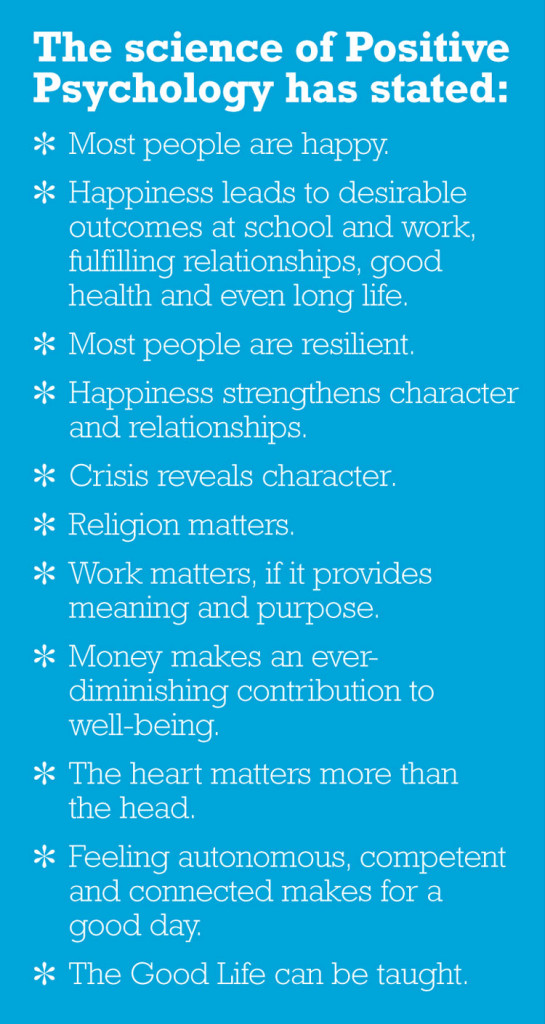By Patricia and Anthony Calabrese
Happy New Year! A time of both celebration and resolution! Although introspection is healthy and productive, starting a new year should also be a time of gratitude. There are holidays dedicated to gratitude, such as Thanksgiving, but New Year’s provides a unique opportunity for each of us to resolve to be grateful throughout the entire year.
Robert Emmons, a professor of psychology and someone who has written on this topic, said that gratitude starts by acknowledging that there is good in the world, manifested by the gifts and benefits that we have received. He reminds us that these gifts come from outside of ourselves and being grateful recognizes this fact. Goodness comes to us by acknowledging these gifts come from a higher power.
Over the last ten years, studies have shown that gratitude has social, psychological, and physical benefits, and that these benefits are available to all in good times and in times of adversity. Happiness follows Gratitude. Practicing gratitude is one of the most reliable methods for increasing life satisfaction. It also boosts optimism, joy, pleasure, enthusiasm and other positive emotions. By doing that, it decreases anxiety and depression.
Emmons and his colleague, Michael McCullough, suggest that gratitude strengthens the immune system, lowers blood pressure and makes us less bothered by aches and pains. It appears that grateful people sleep better and are more refreshed. In the realm of relationships, gratitude makes us more resilient and strengthens the bonds we have with others. It promotes forgiveness and puts us in a mindset to “pay it forward,” making us more altruistic, compassionate, and helpful.
But we are not hardwired to be grateful. When fear and panic set in we can focus on the negative, when in fact it is actually the perfect time to be grateful. Being grateful can put a situation in perspective and consequently decrease panic and open up our minds to new solutions to our problems. Seeing the good along with the bad helps us to be less stuck in a bad place. Gratitude, by helping us to see what “we have,” helps us to need or want less.
Positive Psychology is the study of what makes life most worth living. All too often we focus on the negative, including the counseling professions, which seek to identify and treat “the problem.” The science of Positive Psychology, which was started in the 1960s by Martin Seligman, is an attempt to bring some balance, so as not to just repair what needs healing, but also to look at and examine the strengths we all possess.
Gratitude is very much connected to the foundation of Positive Psychology. The truisms of Positive Psychology include that what is good in life is as genuine as what is bad. Secondly, what is good in life is not just the absence of what is bad. And lastly, the good life requires its own explanation not just the opposite of the theory of disorder.

The benefits of gratitude are not only available to people with optimistic dispositions. Gratitude skills can be taught, developed and practiced. Many people are grateful after averting a major, negative, life event such as a serious accident or health scare. But the benefits of gratitude come from changing the lens of our every day vision, to see things and be grateful at each and every turn.
Start with these skills:
Begin a gratitude journal. List 3-5 things that you are grateful for every day or once a week. Any format will do. If this seems to be difficult, the old adage, “Fake it till you make it” is a way to start. Eventually grateful feelings will follow grateful thoughts.
Write a gratitude letter and deliver it. Choose someone that you are particularly grateful towards and write your feelings and thoughts in a letter to them. Deliver it and preferably read it to them.
Savor the good in your life and don’t gloss over the beauty and pleasure that crossed your path throughout the day.
Focus on intentions. Instead of focusing on the actual gift received, focus instead on the effort made, and cost to the person giving the gift. Focus especially on that person who tried purposely to bring goodness into your life.
Recognize the positive in every day, by sharing it with your family or a friend.
Teach a child these gratitude skills. Many children learn to write thank you notes, but taking this into a child’s everyday thinking helps to become part of their personality.
Give at least one compliment a day to someone else.
Vow not to complain, criticize or gossip for 10 days.
Substitute a positive trait if you identify someone or something with a negative trait.
Practicing gratitude correlates with humility. Consider exploring this in your life.
Remember that the most important blessings are the most consistent such as home, food, health and work. Gratitude is not for big flashy things or events in life, but for the everyday.
Behaviors around gratitude get easier the more we practice and use them, and after awhile it becomes impossible to not be grateful for the many gifts delivered to us every day. In gratitude, we are thankful for your readership.
Anthony Calabrese, PhD, is the Director of Pine Grove’s Outpatient Services. Patricia Calabrese, PMHNP, is a Nurse Practitioner for Pine Grove’s Outpatient Services.

